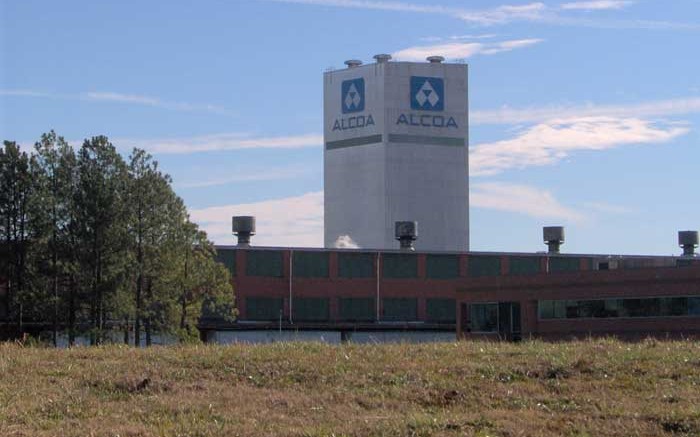VANCOUVER — As 2014 gets underway, the first major miner to report its financials is getting its bad news out of the way.
Alcoa (NYSE: AA) has for years been the first large U.S. corporation to report quarterly results. That timeline and the fact that aluminum is used by several major industries mean Alcoa’s results are sometimes seen as a bellwether for the broader economy.
Miners should hope that is not the case this year.
On Jan. 9 the New York-based aluminum producer announced a US$1.7-billion impairment charge tied to smelting acquisitions made in 1998 and 2000. The huge charge and several other special items overwhelmed Alcoa’s 2013 net income of US$357 million, turning the year into a net loss of US$2.3 billion.
Alcoa’s chairman and CEO Klaus Kleinfeld tried to position the impairment charge in a positive light, saying dealing with these legacy items clears the path for Alcoa’s transformation in 2014.
“We started growing our value-add businesses and lowering the cost base of our commodity businesses at the height of the economic crisis,” Kleinfeld says. “Today this transformation is paying off, with the value-add businesses driving 57% of our revenues and 80% of our segment profits.”
Indeed, while Alcoa’s focus used to be producing aluminum, sagging aluminum prices in recent years have prompted the company to grow its Engineered Products and Solutions (EPS) and Global Rolled Products businesses. The effort is paying off: after-tax operating income rose almost 19% year-over-year in the EPS segment, which makes cast metal goods like aluminum wheels.
Partly because of this success, Alcoa reduced its debt from US$8.8 billion in 2012 to US$8.3 billion in 2013. At year-end the company’s net debt stood at US$6.9 billion — the lowest since December 2006. Alcoa also reported US$1.1 billion in year-over-year productivity savings, and spent only US$786 million on sustaining capital against a US$1-billion annual budget.
Still, those achievements paled alongside news of Alcoa’s US$1.7-billion impairment charge, which was a long time coming. In 1998 Alcoa acquired fellow aluminum producer Alumax in a deal valued at US$3.8 billion. Two years later Alcoa took over Reynolds Metals Co. in a US$4.4-billion deal.
Both acquisitions included significant smelting assets but in the following years, lower metal prices, reduced operating margins and higher discount rates have lowered the fair values of those assets. The new impairment charge recognizes that difference.
Other special items in the fourth quarter added to Alcoa’s loss, such as a series of allowances recorded against deferred tax assets, now unlikely to be realized, that cost the company US$361 million.
And the US$2.3-billion annual net loss, which translates to US$2.14 per share, was not the only bad news. The company announced settlements with the U.S. Department of Justice (DOJ) and the U.S. Securities and Exchange Commission (SEC) regarding the Bahrain bribery scandal.
The charges, now settled, against Alcoa and a joint venture it controls alleged officials in the joint venture bribed Bahraini officials for two decades for the right to supply raw materials to Aluminium Bahrain (Alba). based on its investigation, the SEC concluded Alcoa failed to maintain adequate internal controls to prevent or detect more than US$110 million in improper payments funnelled to Alba through a consultant between 1989 and 2009.
The settlement involves two deals with fines totalling US$384 million. It makes Alcoa’s settlement the fourth-largest foreign market misconduct fine in U.S. history. The company also settled a civil lawsuit with Alba in 2012.
Alcoa was not directly involved in the bribery. Rather the perpetrator was Alcoa World Alumina (AWA), a subsidiary of Alcoa World Alumina and Chemicals (AWAC). AWAC, in turn, is a joint venture between Alcoa and Alumina (NYSE: AWC; ASX: AWC), with Alcoa holding a controlling 60% stake.
In its deal with the DOJ, AWA pled guilty to one count of violating the anti-bribery provisions of the Foreign Corrupt Practices Act and agreed to pay US$223 million in five installments.
That settled matters with the DOJ but not with the SEC, which had filed civil charges against Alcoa. The company settled those charges by agreeing to another US$175-million fine.
Alcoa stressed that neither the DOJ nor the SEC found anyone at Alcoa knowingly engaged in the bribery at issue. Nevertheless the penalties it agreed to pay represent almost 3.5 times the alleged bribes.
Aluminum prices have fallen from US95¢ per lb. in February 2013 to US77¢ per lb. at press time. By contrast Alcoa’s share price spent most of 2013 below US$9, before climbing in October and peaking at US$10.90 in early January.
On news of its impairment charge and the bribery settlements, Alcoa lost US72¢ in two days to close at US$10.11. The company has slightly more than 1 billion shares outstanding.


Be the first to comment on "Alcoa takes a US$2.3B hit"